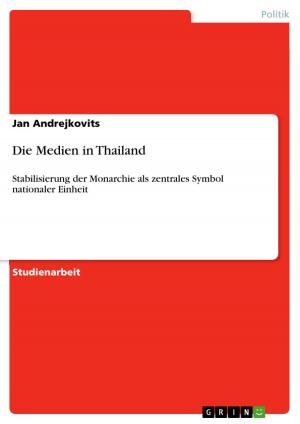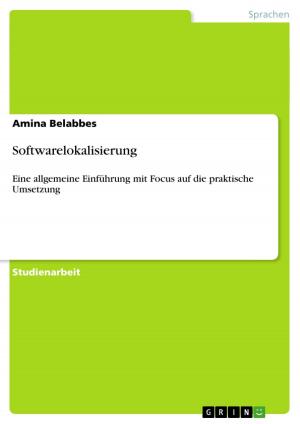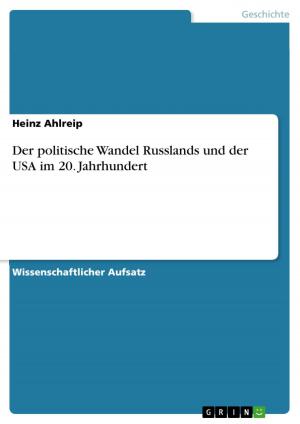Critical examination of the view that mainstream journalists are too close to the intelligence and security services
Nonfiction, Reference & Language, Language Arts, Journalism| Author: | Urs Endhardt | ISBN: | 9783656018735 |
| Publisher: | GRIN Verlag | Publication: | September 30, 2011 |
| Imprint: | GRIN Verlag | Language: | English |
| Author: | Urs Endhardt |
| ISBN: | 9783656018735 |
| Publisher: | GRIN Verlag |
| Publication: | September 30, 2011 |
| Imprint: | GRIN Verlag |
| Language: | English |
Essay from the year 2011 in the subject Communications - Journalism, Journalism Professions, grade: 1,0, University of Lincoln (Media and Humanities), course: International Human Rights for Journalists , language: English, abstract: 'Intelligence sources in Pakistan have said that Miss al-Sadah, and the other relatives of bin Laden currently in hospital will be returned to their countries of origin when they have recovered' (Daily Telegraph, May 5 2011). 'Intelligence sources revealed terrorists intend to target Belfast or Derry to send out their anti-British message on the day Prince William and Kate Middleton marry' (The Mirror, April 25 2011). 'UK spooks were last night in a desperate race to track ten terrorists recruited for a Mumbai-style attack in Europe. A Sun probe reveals intelligence sources believe the cell is committed to a strike before Christmas' (The Sun, October 9 2010). These three quotes from major British newspapers depict the ongoing willingness of journalists to use information from anonymous sources. Whoever thinks that the information disaster during the build-up of the Iraq War, when the UK press regularly published wrong reports based on intelligence sources, has stopped them from continuing this practice, is wrong. But of course this is nothing new. This procedure has been going on for the last sixty years, and not even the most outlandish disinformation campaigns in the past have kept the press from going to bed with spies. In this essay, I want to explore the reasons that lie behind this behaviour. Why do journalists accept information from intelligence sources so willingly? What are the dangers, but also the benefits of this behaviour? What happens if journalists cross the line and work for the intelligence services? And what reasons do spooks have to disguise themselves as hacks? And last, but not least: What has James Bond got to do with it?
Essay from the year 2011 in the subject Communications - Journalism, Journalism Professions, grade: 1,0, University of Lincoln (Media and Humanities), course: International Human Rights for Journalists , language: English, abstract: 'Intelligence sources in Pakistan have said that Miss al-Sadah, and the other relatives of bin Laden currently in hospital will be returned to their countries of origin when they have recovered' (Daily Telegraph, May 5 2011). 'Intelligence sources revealed terrorists intend to target Belfast or Derry to send out their anti-British message on the day Prince William and Kate Middleton marry' (The Mirror, April 25 2011). 'UK spooks were last night in a desperate race to track ten terrorists recruited for a Mumbai-style attack in Europe. A Sun probe reveals intelligence sources believe the cell is committed to a strike before Christmas' (The Sun, October 9 2010). These three quotes from major British newspapers depict the ongoing willingness of journalists to use information from anonymous sources. Whoever thinks that the information disaster during the build-up of the Iraq War, when the UK press regularly published wrong reports based on intelligence sources, has stopped them from continuing this practice, is wrong. But of course this is nothing new. This procedure has been going on for the last sixty years, and not even the most outlandish disinformation campaigns in the past have kept the press from going to bed with spies. In this essay, I want to explore the reasons that lie behind this behaviour. Why do journalists accept information from intelligence sources so willingly? What are the dangers, but also the benefits of this behaviour? What happens if journalists cross the line and work for the intelligence services? And what reasons do spooks have to disguise themselves as hacks? And last, but not least: What has James Bond got to do with it?















